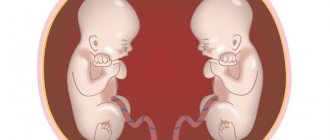The birth of a child usually forces a young mother to pay attention to any condition of the baby: how he sleeps, eats, reacts to his surroundings, what sounds he makes. The latter especially applies to feeding, because we know that when properly attached to the breast, the baby should not make any extraneous sounds. But it also happens that the baby seems to click or smack his lips when feeding. Why does this happen and is it harmful for the baby?
The characteristic smacking sound made by the baby while sucking indicates that the baby is swallowing a small amount of air along with the milk. Of course, any baby can make smacking sounds when feeding. If this happens rarely and is not accompanied by regurgitation or restless behavior, then there is no reason to worry.
However, in some cases, this can provoke discomfort in the tummy, colic, regurgitation and hiccups, and small weight gain, and therefore you should understand the causes of smacking in advance and try to eliminate them.
Usually a child smacks his lips in three cases, each of which has its own solutions:
- incorrect;
- sucking during a strong flow of milk;
- short hyoid frenulum.
We apply it correctly
Smacking your lips is often a sign of improper breastfeeding. Incorrect latching of the nipple leads to the baby swallowing a certain amount of air, which leads to unpleasant sensations in the tummy, frequent regurgitation and hiccups.
The baby should be given the breast only in a wide open mouth, so that the baby grasps not only the nipple, but also most of the areola (i.e., the areola). At the same time, the baby’s lips are slightly turned out and relaxed, and the puffy cheeks move in time with the sucking. If you move your breasts a little, you can see how the baby’s tongue clasps the lower part of the areola. If the baby “slips” onto the nipple, you need to pick up the breast and offer it again.
It is necessary not only so that the baby stops smacking when feeding, but also for successful painless feeding, because in most cases it is what causes cracks in the nipples.
Short bridle
Another reason that a baby smacks during feeding is a physiological feature in the form of a short, dense frenulum or attached to the very tip of the tongue. Because of it, the movements of the tongue are limited, the child is unable to grasp the nipple well, and as a result, he constantly releases it, which causes characteristic sounds.
Along with smacking, another sign of a short frenulum is the baby staying at the breast for a long time: it takes more time for him to eat.
short bridle
A pediatric dentist will help confirm or refute suspicions regarding the length of the frenulum. If it is really too short and inelastic, the doctor will trim it slightly. This procedure is safe, performed very quickly and does not require hospitalization: after it you can immediately go home.
Of course, sometimes the frenulum is dissected under general anesthesia: this usually applies to cases where the frenulum is so short that the tongue seems fused to the floor of the mouth, but this is quite rare.
Trimming the frenulum will not only save you from problems with feeding, but will also protect your child from possible difficulties associated with breathing, mastering speech, forming a bite and correct posture.
Responsibility for the child’s health primarily lies on the shoulders of his mother, so don’t be shy about asking the doctor what you think are stupid or trivial questions. If you are concerned about any phenomenon, even something as seemingly mundane as smacking your lips during feeding, it is better to seek advice and help from a qualified specialist. This will help dispel your fears or prevent the development of complications in the future.
If a child suddenly starts sucking sluggishly, this may be the first sign of any disease. Sick children most often have difficulty eating, and with some respiratory tract or intestinal infections they may refuse to eat altogether. Breastfeeding a child is extremely difficult with various defects of the oral cavity or improper development of the jaw
- with clefts of the upper lip (“cleft lip”) or hard palate (“cleft palate”), defects in the development of the lower jaw, for example, malocclusion.
These defects always make breastfeeding impossible. The “cleft lip” defect is successfully corrected before the age of three months (for weakened children - from three to six months), and a cleft of the hard palate is corrected by surgery after three years. In such cases, the baby should be fed expressed milk from a spoon or through a pacifier, and sometimes feeding is done through a special pad. A special plastic insert is placed in the oral cavity of a child with a cleft palate, which allows him not only to eat normally, but also to begin to pronounce speech sounds. Such an insert must be made by an orthodontist. In some children, the cause of difficulty sucking is a short frenulum of the tongue
.
With such an outwardly invisible defect, the tongue cannot stick out far enough, and this prevents the baby from sucking well (and subsequently will interfere with the ability to pronounce sounds normally). When sucking, the child smacks his lips loudly and even clicks his tongue; he does not eat well and after a short time asks to eat again. Typically, this defect can be easily and painlessly corrected by a pediatric dentist or surgeon on an outpatient basis (it is best to do this before the age of three months). If this defect is not corrected within six months, then minor surgery (with pain relief) may be required. So try to solve this problem before three months. With some diseases,
children may refuse to breastfeed themselves.
Therefore, if a child who previously successfully fed from the breast stubbornly does not want to suckle, you should contact your pediatrician - this may be the first sign of the disease.
, low in weight, have pneumonia, have severe infectious diseases, have a heart defect, or have neurological disorders
to breastfeed Such children are fed from a bottle, and if they still have difficulty sucking, then from a spoon. In some cases, they resort to healthy feeding - this is done in a hospital setting. Such feeding saves the lives of many babies who for a long time completely lack not only the sucking reflex, but also the swallowing reflex. Over time, babies become healthier or simply grow up and learn to suck on their own. Difficulties in feeding appear when a child develops thrush
.
Thrush is a fungal infection of the oral mucosa (fungal stomatitis) - manifested by redness and a whitish coating on the tongue and mucous membrane of the mouth, and in more severe cases on the throat (this makes swallowing difficult). The cause of thrush can be not only poor-quality oral care for the child, but also the use of antibiotics, leading to dysbiosis of the oral cavity. Of course, if it hurts the baby to suck, he will refuse to eat. To prevent thrush, you should carefully care for your breasts, promptly heal cracks in the nipples (thrush is prevented by dry bifidobacteria in ampoules, the solution of which is lubricated with the nipples), and do not forget to boil the bottle, pacifier and spoon from which you feed the baby. To prevent thrush, it is recommended to give the baby one or two teaspoons of clean boiled water after feeding - this will wash away the milk bacteria that serve as a favorable environment for thrush. Thrush is treated by treating the oral cavity with a 2% solution of baking soda (a teaspoon of soda per glass of boiled water). With this solution, moisten a gauze swab made from a piece of sterile gauze wrapped around a finger, and carefully blot (do not rub!) the oral cavity, rinse the nipples with it before giving the baby the breast. You should use a soda solution to rinse the pacifier and wipe the toys that the child puts in his mouth. Often thrush can be transmitted from the child to the mother. In this case, a white coating forms on the nipples, and the mother feels a burning and itching sensation. She should see a doctor immediately. Children who are already receiving complementary foods should exclude all sweets from their diet if they have thrush (sugar not only irritates the mucous membranes, but also contributes to the development of yeast). A child who already receives fermented milk products with thrush should drink kefir with bifidobacteria. Natural vegetable (especially carrot) and fruit (apple and blueberry) juices promote a speedy recovery. Sometimes the child takes the nipple, begins to eat, and after one or two sips stops eating, crying. There may be several reasons for this behavior. This is often how children react to sucking when they have otitis media
(inflammation of the middle ear).
The child experiences a sharp ear pain when sucking. If the child has ear diseases, he will have to be spoon-fed - it will not be so painful for him. Breast sucking is difficult with a thyroid disease such as hypothyroidism
.
This disease is quite rare, but it is with it that sucking is difficult, since the child’s tongue does not fit in the mouth. If detected early, this disease can be cured with the help of medications, because if hypothyroidism is not treated, it causes delays in the mental and physical development of the child and can lead to significant mental retardation. Another reason for refusing to eat may be abdominal pain
.
In small children, the intestines are not yet fully formed, so with the slightest disturbance (pathogenic flora, lack of food enzymes or beneficial bacteria), abdominal pain occurs immediately after eating. Often this is also accompanied by constipation or diarrhea, mucus in the stool, and excessive regurgitation. Such symptoms usually appear a little later, and at first the child simply cries and spits out the breast after a few Sips. In this case, breastfeeding is the main cure, but the baby will most likely have to be fed from a bottle or spoon. We will tell you more about intestinal dysfunctions in the chapter “Dysbacteriosis”. Crying during feeding often occurs in a baby and if he swallows too much air
.
This happens when the baby is in an incorrect position during feeding or when the mother has flat nipples. Air entering the baby's intestines causes severe pain, and the baby cannot continue to suck. To eliminate this reason, you need to ensure that the baby latches onto the breast correctly. If he starts crying immediately after he starts sucking, hold him in a column for a couple of minutes, the baby will burp the air and continue to suck. A child who constantly swallows air should be fed more often - when he is not very hungry, the baby eats more carefully and covers the nipple more tightly with his lips. The use of overlays is usually ineffective. Lack of enzymes that break down lactose
, in very rare cases, causes even breast milk to be rejected.
Any milk is contraindicated for such children, especially cow’s milk. Feeding is carried out with special lactose-free mixtures. Lactose intolerance is usually determined by a pediatrician or gastroenterologist. More information about digestive disorders in infants will be discussed below. Teething
, which often occurs in modern children around four to five months, often also negatively affects breastfeeding.
Many children refuse breastfeeding during this period. If this does happen, try to feed the baby at least expressed milk while teething. At this time, the baby especially needs to support the immune system with mother's milk. Stomatitis
also causes many problems for children . Stomatitis is an infectious inflammatory disease of the mouth and gums, in which small painful ulcers appear that prevent the child from sucking normally and generally taking food and water. Often stomatitis can be accompanied by an increase in temperature. At the first signs of stomatitis, you should consult a doctor. This disease usually occurs at a later age, when the child begins to “explore” new territories. At the same time, babies put various objects into their mouths, often not entirely clean. Objects that a child picks up on the street are especially dangerous. They can injure the oral cavity and cause infection.
New sounds that a baby makes are always a reason for joy for every mother. But if the baby clicks during feeding, this may indicate frenulum defects and improper attachment to the breast. This behavior of the baby alarms many women, especially if he behaves restlessly at this time.
Tongue clicking is characteristic of almost every baby. There is no reason for the mother to worry if this happens extremely rarely and does not entail any consequences. Restless behavior or frequent spitting up may be cause for concern.
In fact, new mothers face this problem and often the older generation (especially grandmothers) can escalate the situation. For most women, this behavior of their baby amuses and brings joy, because he has learned something new.
The ingress of air along with the mother's milk is the reason that the baby clicks his tongue while sucking in his sleep.
In some cases, if a child clicks his tongue in his sleep, this can lead to painful sensations in the baby’s stomach, he begins to have hiccups, colic and regurgitation, and he will also gain little weight. In any case, you need to understand the causes of the clicking noise and find out when they need to be eliminated and when you can leave everything as is.
Why does a baby smack when feeding:
- strong flow of milk;
- improper breast grip;
- short frenulum under the tongue.
Every mother should learn to feel her baby and understand when something is really bothering him, and when grandmothers are simply telling myths. Observe your newborn to make sure he is breastfeeding correctly. If there are no problems with attachments, and the baby grasps the entire nipple and areola, then the reason may be strong hot flashes, when the baby simply does not have time to suck.
If the previous two problems are not confirmed, then you should pay attention to the hyoid frenulum. The baby smacks his tongue when breastfeeding if the breast is short.
What to do if a child swallows air?
There are two ways to help your baby:
- take the child on your lap and support the back. Lightly stroke your tummy;
- hold the baby in a “column” position. His head should touch his mother's shoulder. Lightly pat him on the back. Air masses will come out quickly. Otherwise, put the baby down and repeat the procedure again.
When the baby swallows air while feeding from a bottle and stops eating, pick him up, hold him, let him burp, continue to feed him.
Whenever your baby finishes eating, give him the opportunity to burp. Air masses will then stop collecting in the ventricle, and the baby will not show anxiety.
To make feeding a joy for mother and baby, use these tips:
- give only warm mixture;
- tilt the bottle so that the nipple is completely filled and the air masses go to the bottom;
- Monitor the position of the baby's head. It should be on the same level as his body;
- During feeding, you can change the position of the baby;
- check the hole in the nipple. It should not be too small nor too large.;
- Turn the bottle nipple side down. The milk should drip, not flow;
- learn to determine when your baby is already full. Don't try to overfeed him.
Using the tips above, you can prevent your child from swallowing air. He will not experience discomfort after feeding. The process of eating will be calm.
Hello!
Have you looked at the frenulum under the tongue? The description is very typical for a short or short frenulum in a child. Only a specialist can determine if it is short and trim it on the spot if necessary.
All the best!
Correct attachment and hot flashes
The main reason that a baby smacks his lips while breastfeeding is improper attachment to the breast. If the nipple and areola are not completely captured, the baby will swallow a certain amount of air along with the milk, and as a result, he will be bothered by bloating and colic.
Real hunger. Before offering your baby the breast, you should make sure that he really wants to eat. The feeding process should only happen when the baby is hungry; it is not recommended to accustom him to the fact that he can play with the breast in his mouth or be constantly present, like a pacifier. This will make the mother’s daily routine easier and will be beneficial for the child.
Correct application. To prevent the baby from smacking while sucking, his mouth should be wide open, completely covering the nipple and approximately 80% of the areola. The lips should be relaxed and slightly turned out. The cheeks are slightly puffed out, and the rhythm of breast sucking can be seen from them. If you look closely, you will notice that the tongue has completely engulfed the areola from below. In the case when the baby has slid down and is sucking only the edge of the nipple, you need to take the breast from him and offer him again.
Proper breastfeeding is necessary not only so that the newborn stops clicking, but also so that feeding is painless for the mother, and the baby develops a correct bite. Incorrect attachment can cause cracked nipples.
Strong lactation. If a baby smacks his lips while breastfeeding, even if the attachment was correct, this may indicate that he does not have time to swallow milk due to a rapid flow. This is possible from the first months after birth, when the lactation process has not yet normalized. To prevent the baby from choking during feeding, the mother needs to express a little milk until the problem is solved.
Why do people click their teeth?
Sometimes people notice that they hear clicking noises while eating or yawning. If this happens rarely and does not cause discomfort, then you can ignore it. But if the jaw clicks constantly, and it is the jaw that can click in the mouth, you need to look for the cause.
Crunching and clicking sounds may be a symptom of:
- Incorrectly installed crowns;
- Wear of teeth and, as a result, changes in their shape;
- Injuries to the bones of the skull and jaw;
- Malocclusion, due to which people often have a lisp;
- Inflammation of the temporomandibular joint;
- Thinning of the mandibular joint;
- Unprofessional dental treatment;
- Subluxation of the jaw as a result of a wide yawn or when biting hard foods;
- Advanced caries.
Sometimes this is the result of severe stress or prolonged nervous tension, as a result of which muscle spasm occurs, accompanied by clicking and chattering of the teeth. Rarely does the crunch appear after long singing or among those who like to talk loudly and for a long time.
If pain occurs, you must urgently consult a specialist; an examination by a dentist and surgeon is necessary. Also, the joints can become inflamed and enlarged, which is felt when pressed and requires urgent consultation with a doctor. Painful clicks indicate the possibility of diseases such as reactive arthritis and rheumatism. The doctor may prescribe anti-inflammatory medications or recommend surgery.
An exercise to push the lower jaw forward, performed up to 10 times every day, can also cope with clicking. Or move it left or right. If the pain increases and it is not possible to see a doctor immediately, you need to apply a warm compress and take a pain reliever.
Sometimes clicks can be heard during sleep, often accompanied by a subsequent creaking sound. Nighttime teeth grinding has a medical name - bruxism. And it has no less reasons than clicks:
- Not the emotional stress released during the day or the resulting stress;
- Erasing incorrectly placed protruding fillings, malocclusion, caries;
- An inherited habit.
The myth that worms are the cause of creaking is refuted by repeated studies of people grinding their teeth in their sleep.
The result can be loose teeth and abrasion of enamel, damage to dentures, disruption of the jaw apparatus, causing clicking, and lack of sleep.
Short bridle
If your baby clicks his tongue while bottle feeding or breastfeeding, this may indicate a short frenulum. This is the name given to the physiological feature when the frenulum is attached to the edge of the tongue. This causes incorrect grip, because the baby’s tongue movements are limited. For these children, it takes a little longer to get full and they begin to lose weight.
Only a highly qualified pediatric dentist can tell whether a child’s frenulum is short or long. If it is short and not elastic, the doctor suggests trimming it. This procedure is performed in a dentist's office for a short time. You do not have to go to the hospital with your child, since after the procedure you can go home straight away.
In some cases, cutting under general anesthesia is possible. This applies to those children whose frenulum is so short that the tongue seems to be completely attached to the bottom of the mouth. This anomaly is extremely rare. If the decision has been made to trim the frenulum, this will help improve feeding, save the baby from breathing problems and speech defects, and also form the correct bite.
The problem of a child clicking his tongue in his sleep is quite common. Every mother is responsible for her baby and it is very important for her to understand the reasons for this behavior. It is also worth determining which of the above concerns directly her child.
Eliminating the cause is sometimes simple: you just need to correct the process of attaching a newborn to the breast and establish lactation. In some cases, a more serious solution to the problem is possible - you will have to stretch or trim the frenulum.
Hello!
Have you looked at the frenulum under the tongue? The description is very typical for a short or short frenulum in a child. Only a specialist can determine if it is short and trim it on the spot if necessary.
All the best!
A child clicks his tongue in his sleep :: Doktor.ru
Hello, an 8-year-old child, when he sleeps, clicks his tongue as if he is sucking a pacifier, is this a habit or a symptom?
Hello. It looks like a certain habit, although a habit can be a symptom. Some children have a vessel in a dream, their tongue in a dream. Not scary, not wrong
Other questions on the topic
If you have headaches, can you work at night?
Is venous malformation dangerous?
Is it true that childhood masturbation interferes with brain growth?
Is it possible to kill neurons and the brain by masturbation?
Was it a mini-stroke and how to decipher the result of an MRI of the brain?
What is the treatment for the vegetative nervous system?
Why fever after a stroke at normal temperature?
Are antidepressants compatible with tranquilizers?
How to force a doctor to change Nakom to Madapar?
Is there a connection between aneurysms and malformations and deterioration of the condition?
Why do shoulder joints hurt?
Why do my ring toes cramp?











